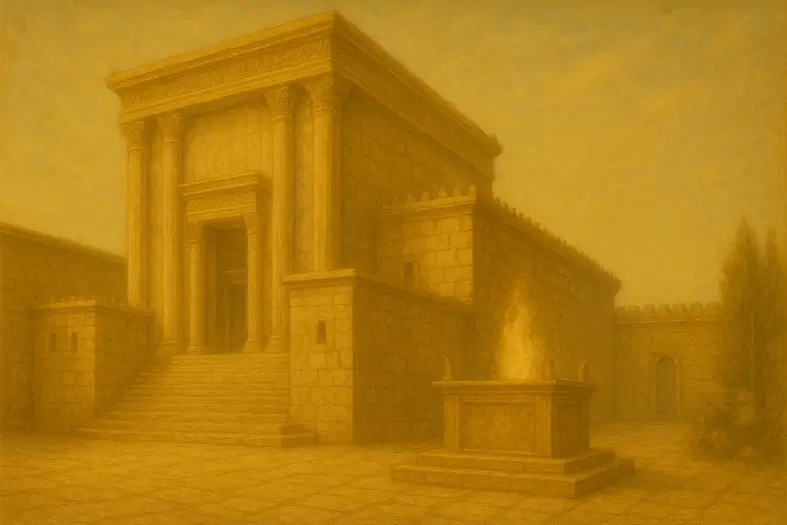


We are commanded to sanctify and honor the Kohanim, giving them precedence in holiness and ensuring they are set apart for service in the Temple.
This mitzvah obligates Israel to treat the Kohanim as sanctified servants of Hashem, recognizing their unique role in offering sacrifices and representing the people before G-d. The command includes granting them precedence in communal life — giving them the first aliyah to the Torah, priority in blessings, and honor at meals.
The sanctification is not only symbolic but practical: the Kohanim are supported through gifts and portions such as terumah, challah, and the priestly portions of offerings. By elevating the Kohanim, Israel fulfills Hashem’s directive that they remain holy, for they serve as custodians of the Temple’s sanctity and as representatives of the people in Divine service.
Commentary & Classical Explanation:


Represents the concept of spiritual intentionality, purity, and sanctity—set apart for a higher purpose.
Concerns the Beit HaMikdash, korbanot (offerings), and priestly service.
Mitzvot that strengthen communal life — showing up, participating, supporting, and belonging. Community is where holiness is shared, prayers are multiplied, and responsibility becomes collective.
Signifies awe and reverence toward Hashem—living with awareness of His greatness and presence.
Mitzvot that define and deepen the relationship between a person and their Creator. These include commandments involving belief, prayer, Shabbat, festivals, sacrifices, and personal holiness — expressions of devotion rooted in divine connection.
Mitzvot that govern ethical behavior, kindness, justice, and responsibility in human relationships. These actions build trust, dignity, and peace between people.

Dive into mitzvos, prayer, and Torah study—each section curated to help you learn, reflect, and live with intention. New insights are added regularly, creating an evolving space for spiritual growth.

Explore the 613 mitzvos and uncover the meaning behind each one. Discover practical ways to integrate them into your daily life with insights, sources, and guided reflection.

Learn the structure, depth, and spiritual intent behind Jewish prayer. Dive into morning blessings, Shema, Amidah, and more—with tools to enrich your daily connection.

Each week’s parsha offers timeless wisdom and modern relevance. Explore summaries, key themes, and mitzvah connections to deepen your understanding of the Torah cycle.